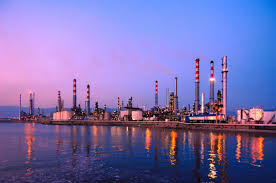Strategic transition plan: Tupras management released yesterday the details of its
Strategic Transition Plan focusing on sustaining and improving the profitability of its
core refining business, conversion of one of the existing units into a biofuel plant
targeting 75% sustainable aviation fuel yield, and the development of renewable
electricity and green hydrogen production capacities in order to decarbonise its own
operations and target the future hydrogen market.
The company targets an incremental USD300m EBITDA generation by 2030 at the cost of roughly doubling its average annual capex to c.USD320m and the initial reduction of its Scope 1 and 2 emissions by 27%. Many of the projects will be scalable and this will be followed by an increase in annual capex budget to USD400m but the management expect no incremental EBITDA growth beyond 2030 given likely pressures on its core refining business. FCF implications: On a cumulative basis, the company expects 2022-30 EBITDA of the biofuel project to exceed capex by USD210m (USD500m in 2022-35), while for the renewable electricity and green hydrogen projects the company expects a
USD675m shortfall (a USD950m shortfall in 2022-35 of which USD900m in renewable electricity projects).
Tupras has revised its dividend policy by reducing its target payout ratio to 80% from 90% previously and targets a USD5bn dividend out of USD7bn FCF in 2022-35, implying an average 11% dividend yield. The management estimates that Tupras could possibly resume dividend payments in 2024. Our view: In general, decarbonisation options for Tupras may indeed be relatively expensive given lack of domestic gas supply and carbon storage options – some of the company’s peers consider blue hydrogen projects instead where such options are available. We expected some of the capex hikes (see Tupras: Downgrade to Hold: Low season dated 12 Nov 2021) and are not concerned about slightly lower dividend payouts. However, for a short duration stock like Tupras, the near-term negative impact of these projects on free cash flow, coupled with still distant resumption of dividend payments, could offset the benefits of further recovery in fuel markets.
Raise TP to TRY177 (from TRY170), maintain Hold rating: With this note, we reflect the management capex guidance and possible near-term impact of the respective returns in our model which captures years up to 2024. We also reflect a faster-than-expected correction in refining margins in 4Q2021 to date and weaker- than-expected TRY. We also adjust our valuation methodology by assigning a higher weight to EV/EBITDA-based valuation metric at the expense of lower DCF weight given a likely more backloaded FCF profile.
HSBC Global Research
